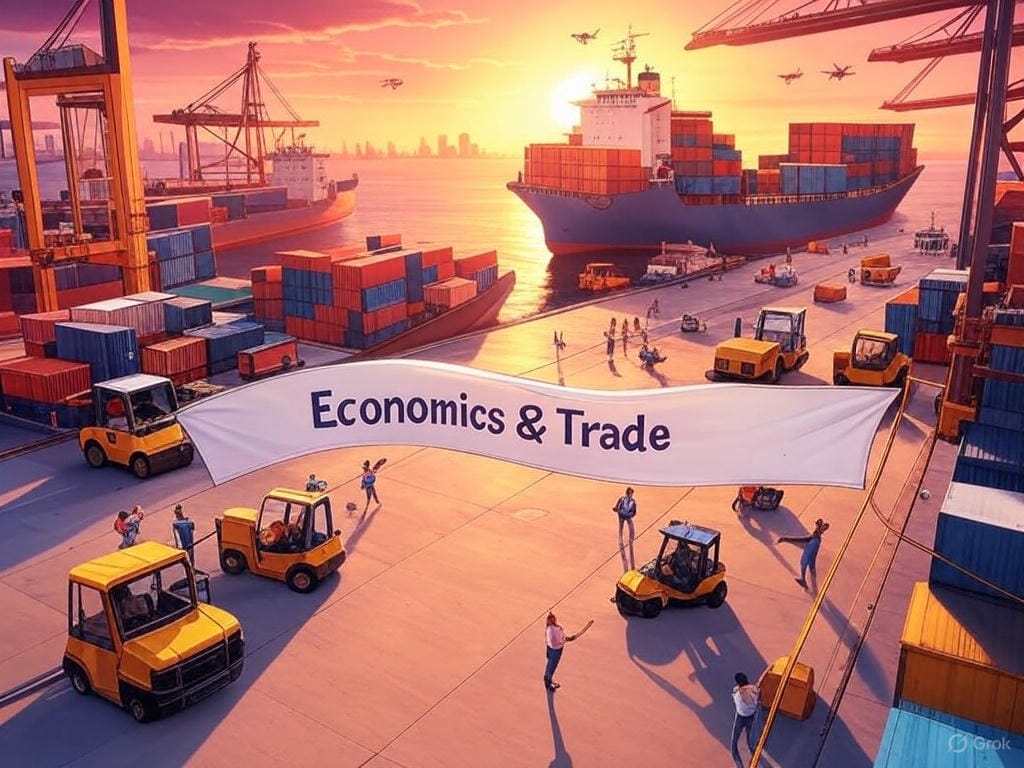
The economic theory of comparative advantage has long guided international trade. The idea is simple but powerful: countries should specialize in producing goods they can make most efficiently and trade for everything else. Over time, this has led to a global system built around specialization, scale, and cost savings.
But there are limits. Not every sector can—or should—be left to the mercy of global market forces. In industries that are strategic or critical to national security and economic stability, comparative advantage should sometimes be ignored in favor of domestic resilience.
Comparative Advantage Isn’t Always a Safe Bet
Comparative advantage works best under the assumption that supply chains are stable, trading partners are reliable, and goods flow freely across borders. However, real-world events have shown that this ideal doesn’t always hold up—especially when too much reliance is placed on a small number of foreign suppliers.
Take the example of pharmaceutical precursors—the raw chemical ingredients required to manufacture essential medications. In recent decades, countries like the U.S., Canada, and much of Europe have shifted production of these precursors to a small number of countries in Asia, particularly China and India, where manufacturing is more cost-effective.
While this has led to lower production costs, it has also created a strategic vulnerability. When shipping routes are disrupted, energy prices spike, or diplomatic tensions rise, these critical supply chains can slow or stop altogether. Without access to these precursors, domestic pharmaceutical producers can’t manufacture antibiotics, blood pressure medication, or other widely used treatments—even if they have the factories and workers ready at home.
Why Some Sectors Require Domestic Production
Certain industries are too important to outsource entirely. Here's why:
1. Semiconductors
As the 2020–2021 global chip shortage revealed, semiconductors are the foundation of modern life—used in everything from vehicles and appliances to communications and defense systems. Concentration of chip production in just a few countries has proven dangerous, prompting governments to invest in onshore manufacturing, even at higher cost.
2. Defense Equipment
A nation’s ability to defend itself depends on secure access to weapons, satellites, and secure communication systems. Relying on foreign producers—even friendly ones—creates long-term risks that can’t be measured in economic terms alone.
3. Energy Technology
Control over energy infrastructure, battery production, and critical minerals ensures not just environmental policy success but national autonomy. Supply disruptions can have far-reaching consequences on both economic activity and public confidence.
4. Pharmaceutical Precursors
Without the chemical building blocks of modern medicine, pharmaceutical sovereignty is an illusion. Nations that cannot control or secure this part of the supply chain risk widespread shortages, not due to a lack of knowledge—but because of dependence on foreign inputs.
Domestic Production: Less Efficient, But More Secure
Yes, manufacturing many of these products domestically may be more expensive. But that inefficiency buys resilience. It insulates national economies from sudden shocks, adversarial trade policies, and over concentration of industrial capacity in politically sensitive regions.
If a domestic facility can produce medication precursors or microchips at 20% higher cost, it may still be worth doing—not to out compete the lowest-cost producer, but to guarantee access when it matters most.
Conclusion: Sovereignty Comes Before Efficiency
Comparative advantage is a useful guide for routine trade. But in strategic sectors, economic models should take a back seat to national resilience and security. A country that cannot produce its own medication ingredients or maintain its tech infrastructure risks being held hostage by foreign supply disruptions.
In these cases, the goal isn’t profit—it’s protection. That may mean governments subsidize domestic production, impose minimum capacity requirements, or invest directly in infrastructure. These are not market failures—they are strategic necessities.
In a volatile world, the ability to produce what matters most—even at a premium—is not inefficiency. It’s insurance.
Miika Makela, CFA
https://www.linkedin.com/in/miika-makela-cfa-24aa056/
#Comparative Advantage #Global Trade #Economics Explained #Economic Literacy #National Security #Supply Chain Security #Strategic Manufacturing



